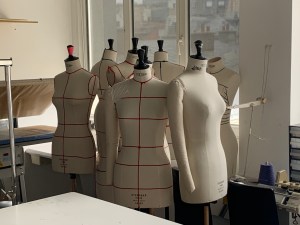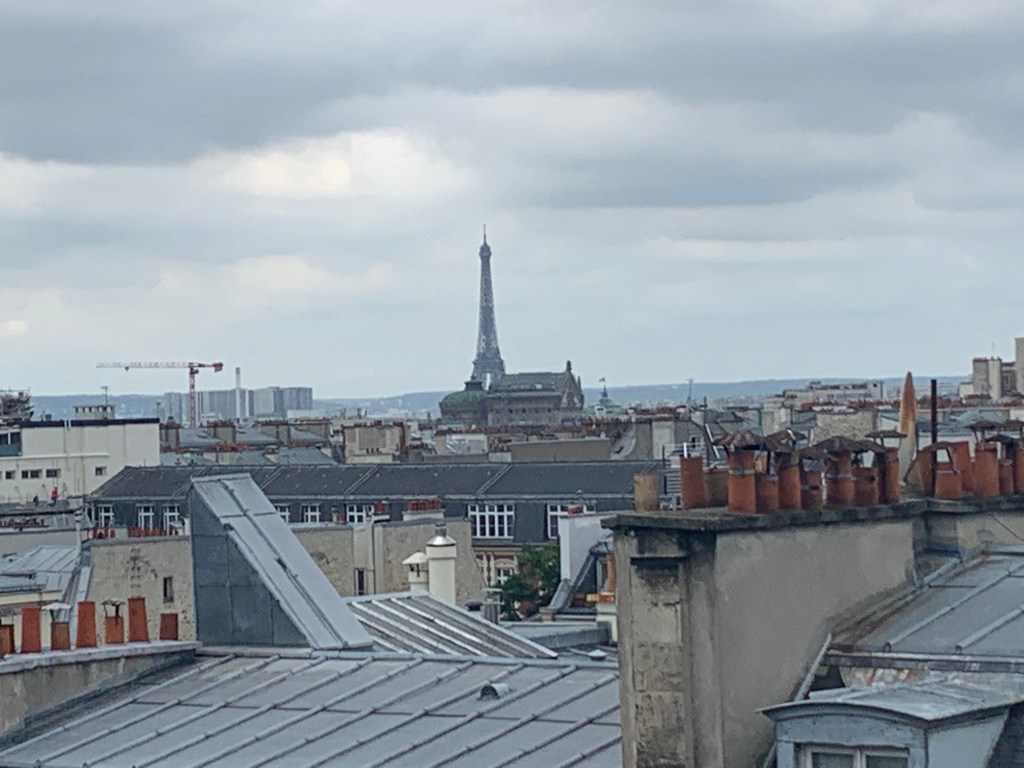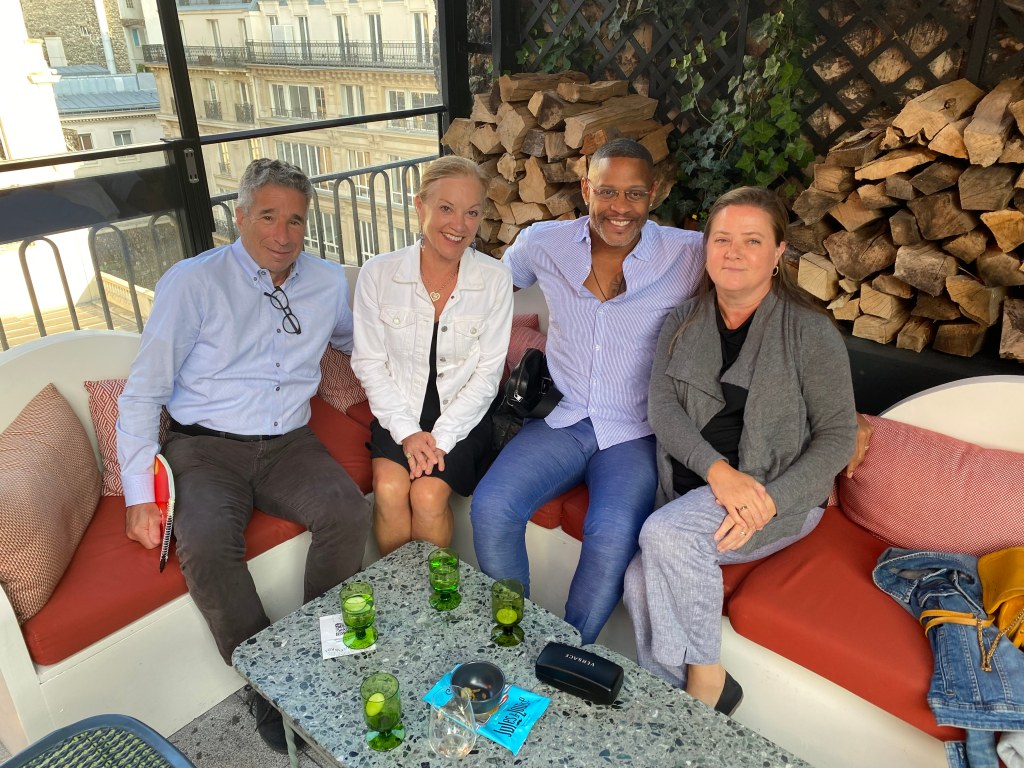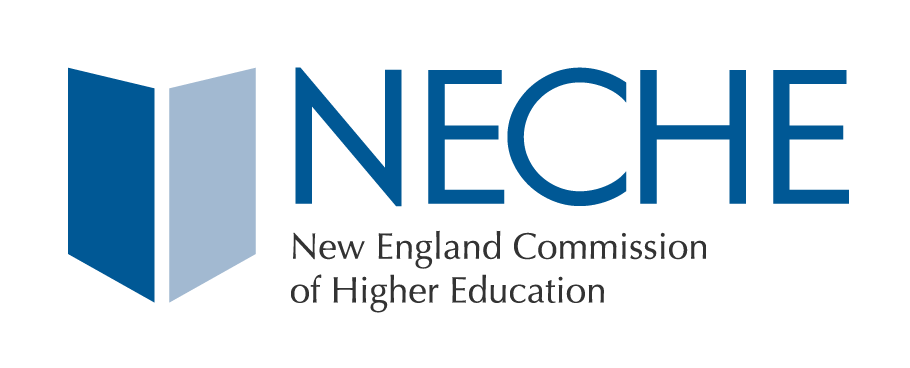The first stop on our NECHE European road trip began on a fortuitous note. The flight from Boston to Paris takes a mere six hours, and despite some anxiousness about international travel these days, we simply showed our vaccination cards and passports at Logan and clambered aboard. Landing at 6 a.m. on an August Sunday in Paris meant the city was sunny, quiet, and almost entirely ours to explore. After an early hotel check-in, we took a bit of a nap (four dead-asleep hours) and an afternoon stroll past the glorious Opera House and through the Jardin de Tuileries, then met up with our hosts President Linda Jarvin from the Paris College of Art (PCA) and Dr. Anthony Pinder, Vice President of International Affairs at Emerson College in Boston. (Quick aside: vaccination cards were required at virtually every store and restaurant in the city, which seemed a logical and safe protocol.)



PCA is one of a dozen international institutions in NECHE’s accreditation pipeline. President Jarvin will appear before the Commission this September to request that PCA be granted candidacy status after a positive virtual team visit was conducted this past Spring. One reason for my trip was to fulfill NECHE’s requirement of a physical visit to an institution to confirm the findings of the virtual visiting team. A second motivation was to address a substantive change request from Emerson College for the Commission to approve a new program, a joint Global Bachelor of Fine Arts degree between Emerson and PCA.
Paris College of Art has a fascinating history
Its academic programs began in 1981 under the name Parsons Paris, established by the well-known Parsons School of Design in New York City and run in association with the American University of Paris. Five years later, the school became a branch campus of The New School in NYC and in 2010, the name Paris College of Art was established, with degree-granting authority from the state of Delaware. In 2014, PCA became fully independent and began its process of seeking accreditation from NECHE. President Jarvin, who was PCA Dean at the time, helped lead this move to full independence. A child of Swedish-born parents, Jarvin moved from America to France when she was 8, then after college spent 13 years in America at Yale and Tufts (both NECHE-accredited, of course) and she carries a U.S. passport, which is why she will be able to join the Commission in Boston next month. (EU citizens are currently not permitted to enter the United States, due to covid restrictions on inbound travel.)

PCA is a small college with a student-to-faculty ratio of less than three to one and an average class size of 12. It enrolls 200 truly international students (two-thirds undergraduate and one-third graduate) with 36% coming from the United States, 15% from Asia, 28% from Europe, 8% from South America, 4% from the Middle East, and 9% from other parts of the world. Its 100-plus faculty members are mostly practicing professionals in the arts in Paris, and through these teachers, PCA students develop valuable professional contacts among a wide array of industry and arts organizations. The students’ list of professional projects is amazing– from designing fifteen windows at the Hermès store on Avenue George V, to developing signature scents for the global fragrance manufacturer Takasago. (I’m hoping one of their new signature scents will be called NECHE on the Nose.) President Jarvin was plucked out of her Dean’s position and made President back in 2019, and has been providing visionary leadership to PCA ever since.


So, how does Emerson College enter into this equation? First, a few Emersonian facts. Founded in 1880 as a school of oratory, elocution, and dramatic art, Emerson now enrolls more than 4,000 students at its spectacular downtown Boston location. Its guiding philosophy is to enrich students’ understanding of how people reach other people, examining the means, the media, the creative impulses, and the institutions that communicate, inform, and inspire. Speaking of inspiration, Emerson’s long-term, very successful, and transformative president, Lee Pelton, has just stepped down to lead the Community Foundation of Boston. Under Lee’s leadership, Emerson’s footprint greatly expanded, including at its 100,000 square-foot Los Angeles campus and in sponsored programs in sixteen countries including the Netherlands, Switzerland, Spain, Mexico, Austria, China, and of course in Paris, France. That brings us to the Global BFA and these two colleges’ unique relationship.

I had an engrossing conversation with Linda and Tony about this new venture (in the “small world” discovery, Tony is both an Atlantan and a Morehouse grad and we share a number of friends and acquaintances). It was clear in talking to both leaders that what has made the program work is the respect each has for the integrity of the Global BFA program as a stand-alone venture –as well as respect for the two very different cultures of the institutions responsible for its success. Emerson is a residential college that prides itself on the hands-on care it provides its students. Paris College of Art, on the other hand, has never offered housing to any of its students (until the advent of the Global BFA program) and its student philosophy has always been to give students a wide berth of independence. So, as Linda & Tony described, their joint students can often find themselves betwixt and between two very different institutional cultures — which makes going back to regulated Boston, for instance, a bit of a jolt after two semesters spent living in wide-open Paris.
The Global BFA, now entering its third year, is located near Montmartre in the 10th arrondissement and combines the strengths of Emerson’s renowned Visual and Media Arts Program with the excellent Studio Arts instruction of PCA. In fact, Emerson is the first US college devoted to the arts, communication, and the liberal arts to offer an international bachelor’s degree program in Film Art. Students spend three full academic years in Paris and three summers in Boston at Emerson (as well as a fourth summer in the Netherlands). The third cohort of students in the innovative Global BFA program arrived in Paris this week, and it’s hard to imagine a more immersive college experience for aspiring young artists.
I found the idea of the Global BFA program to be incredibly compelling and was captivated by the creativity on display at the Paris College of Art. I suspect it’s a harbinger of the innovative collaboration between international institutions that we will see far more of in the future.

Listen to my conversation with President Linda Jarvin:

